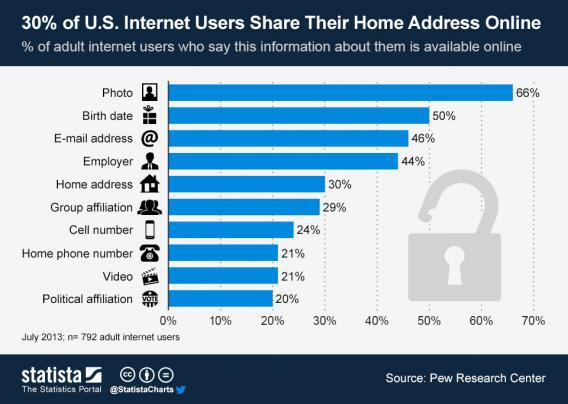Summer has ended, but Edward Snowden’s revelations about government Internet surveillance aren’t letting up, as evidenced by Thursday’s Guardian report about how encryption can be foiled.
But a Pew survey also released Thursday suggests that the NSA leaks didn’t prompt major changes in Americans’ Internet habits—at least not at first. The polling for the report “Anonymity, Privacy, and Security Online” was conducted in July 11-14, a month after Snowden began blowing his whistle, and it seems to suggest that Americans are taking privacy seriously: Eight-six percent of those surveyed reported that they had tried to hide their Internet tracks at least once, most commonly by deleting something from their browser history, removing or editing a public posting, or disabling cookies. That’s good news, given the common lament that people say they care about digital privacy but don’t take action to protect themselves.
So whose prying eyes are Internet users trying to evade? “Hackers, criminals and advertisers are at the top of the list of groups people wish to avoid,” says the report. “Certain friends” and “people from your past” are also commonly avoided. Just 5 percent say they have attempted to avoid “the government,” while 4 percent have tried to hide their virtual tracks from “law enforcement.”
Meanwhile, a late July survey—also from the good people at Pew—found:
A majority of Americans—56%—say that federal courts fail to provide adequate limits on the telephone and internet data the government is collecting as part of its anti-terrorism efforts. An even larger percentage (70%) believes that the government uses this data for purposes other than investigating terrorism.
So people are concerned about the fact that the government is watching but rarely try to interrupt the process. That may actually be reasonable: “If you’re not a cryptography ninja or a security guru, then the NSA will know your secrets if they target you,” Sascha Meinrath and Brian Duggan of the New America Foundation’s Open Technology Institute write on New America’s new publication the Weekly Wonk. Meinrath and Duggan do share some user-friendly privacy tips that are worth checking, though. (Future Tense is a partnership of Slate, the New America Foundation, and Arizona State University.)
The average person probably can’t stop the NSA’s surveillance—but you also don’t have to be dumb about what you share online. Remember those 86 percent of people who say they have tried to protect their privacy? Well, they sure are sharing a lot about themselves online.

Image courtesy Statista
